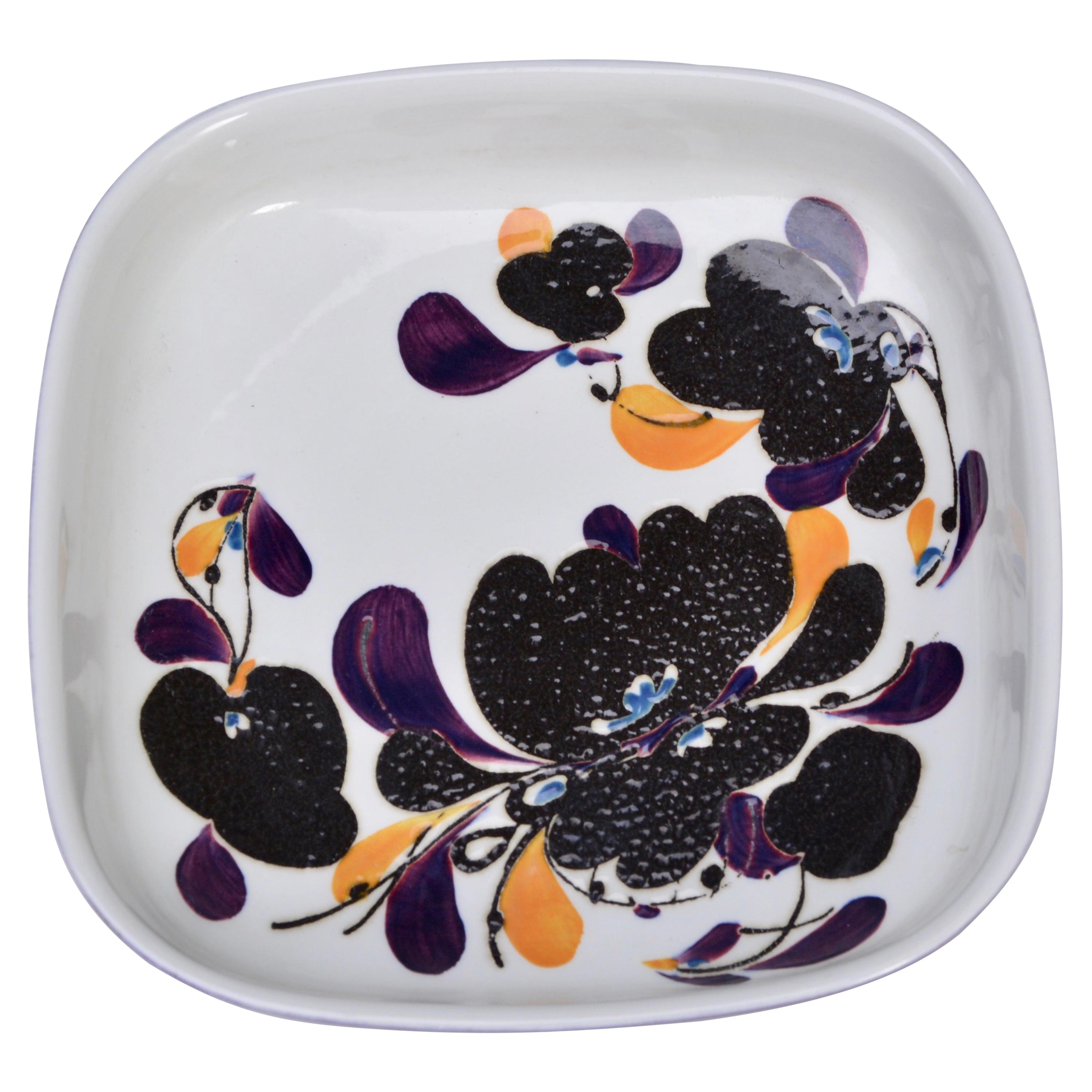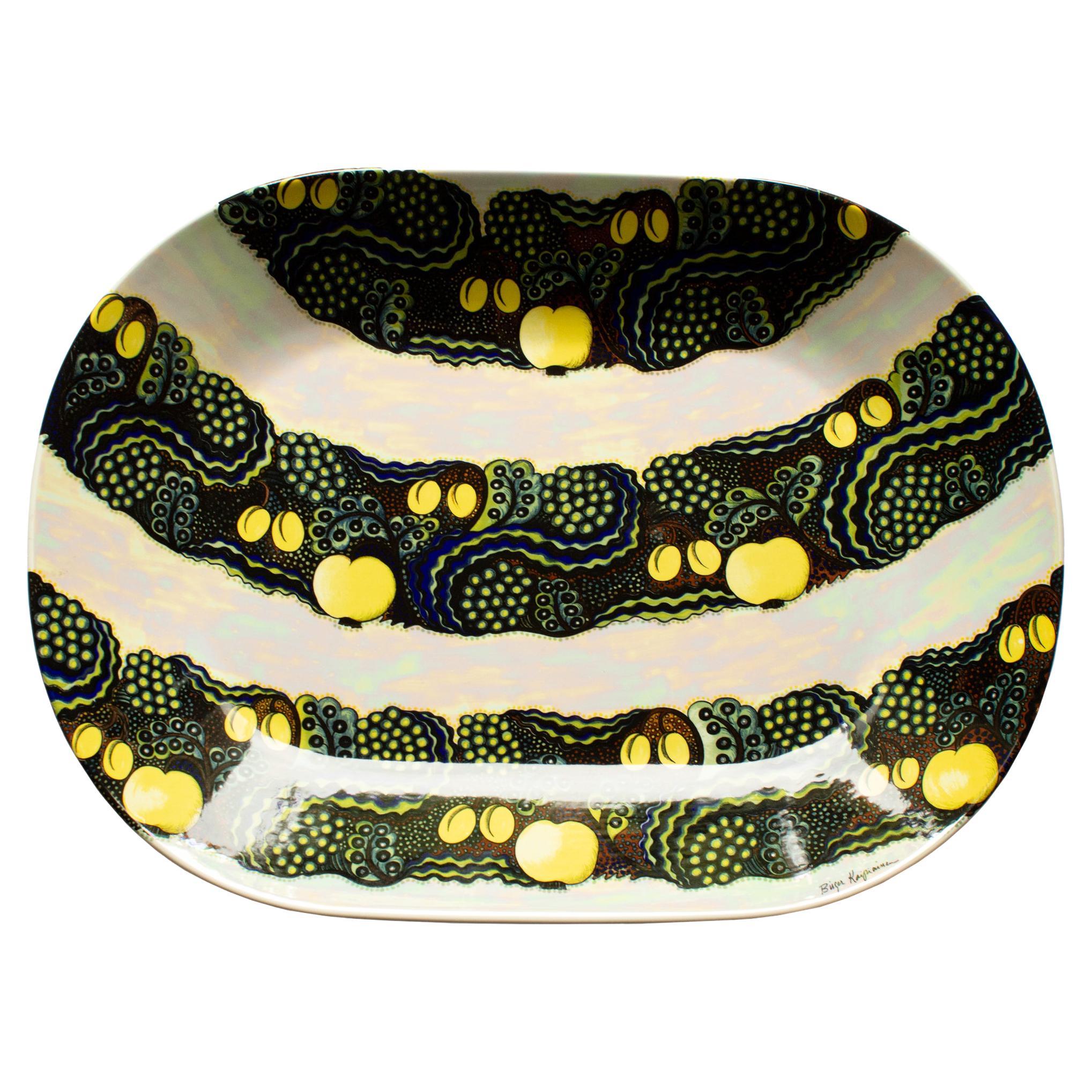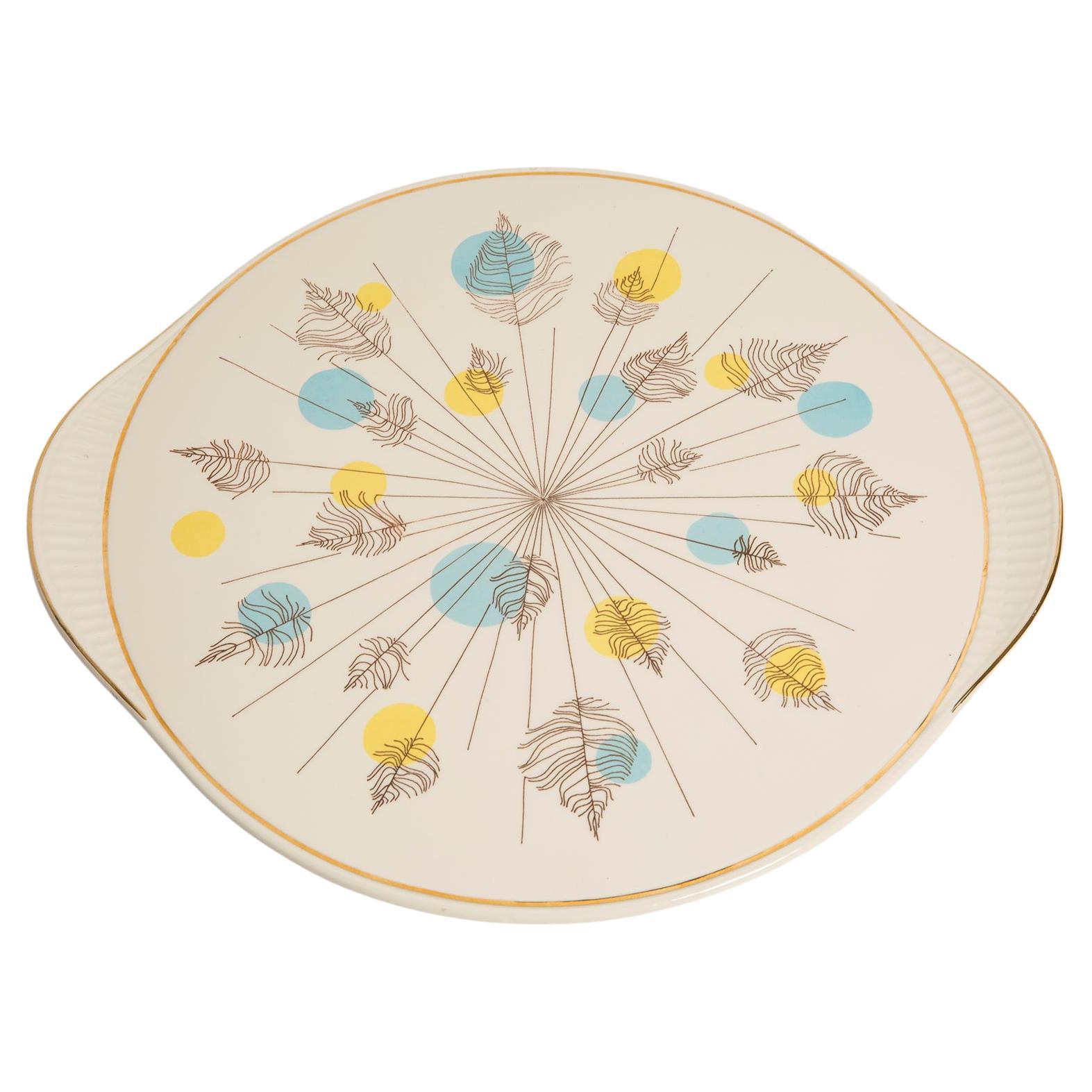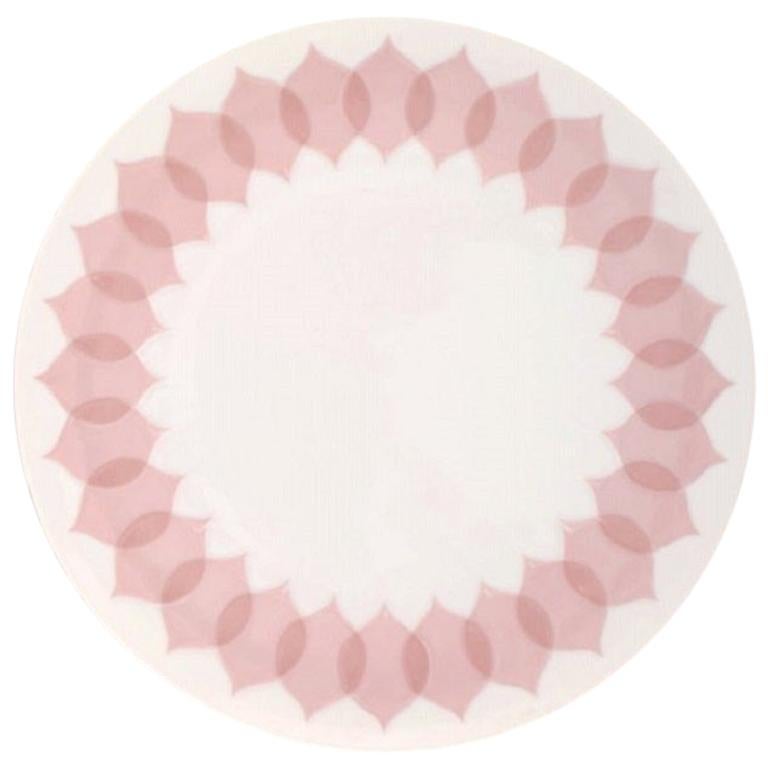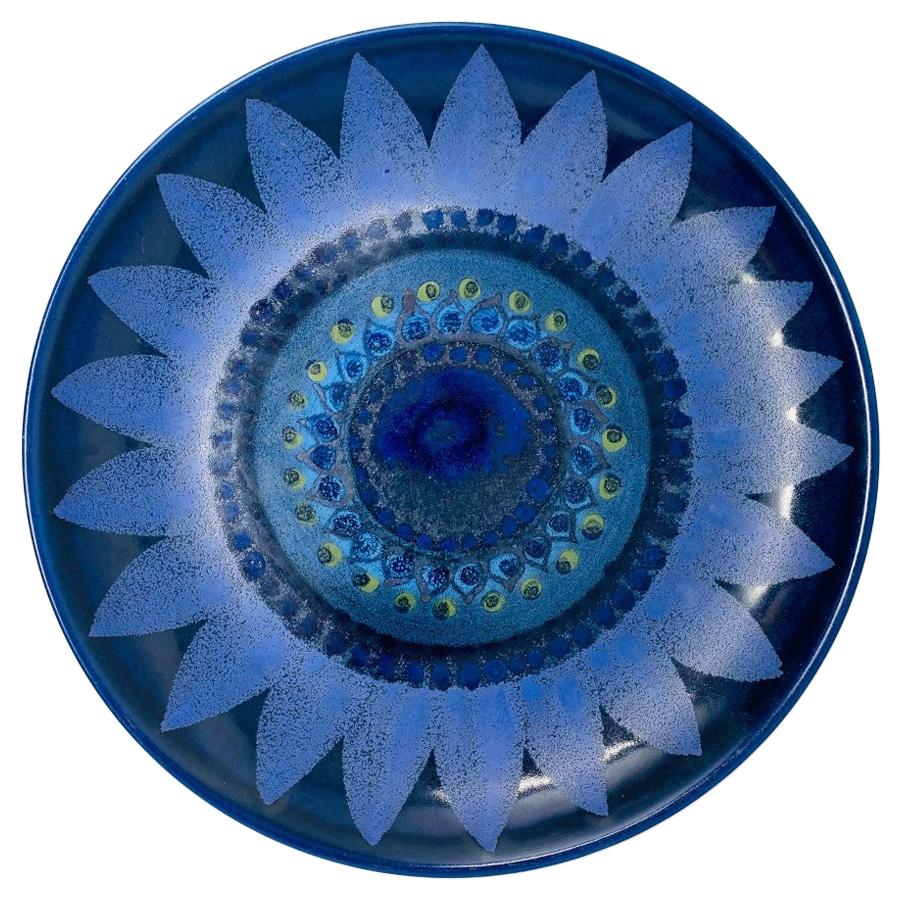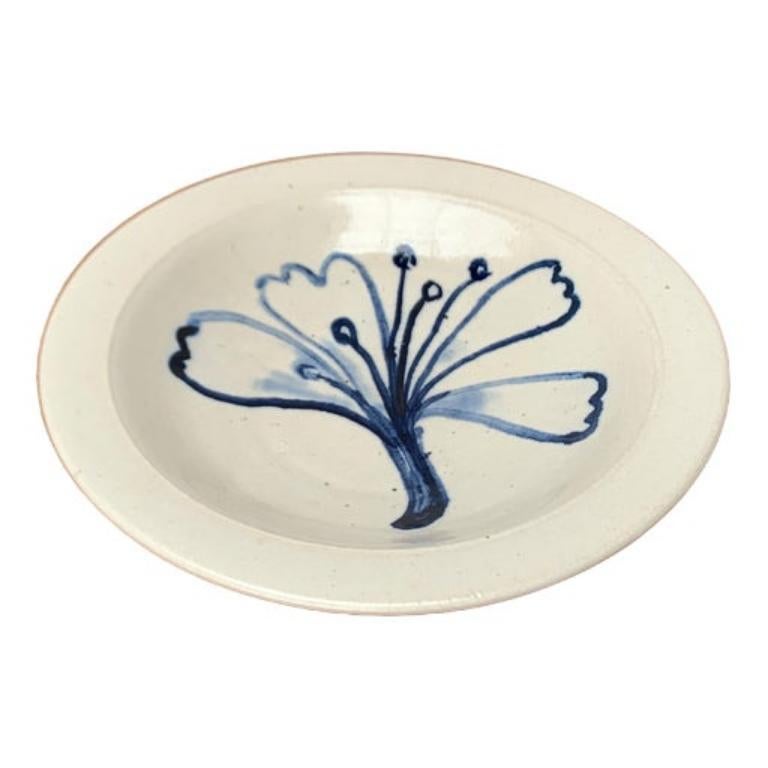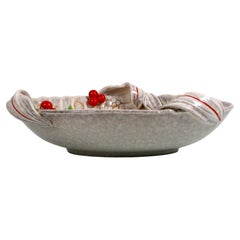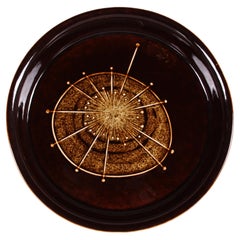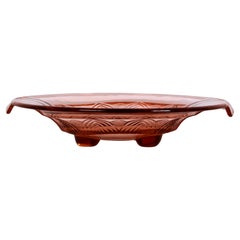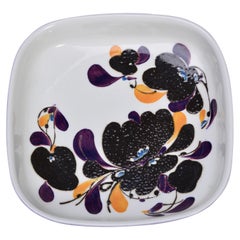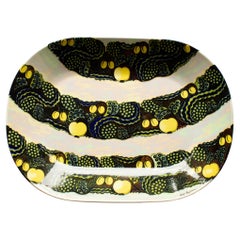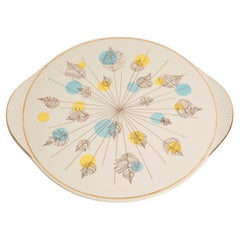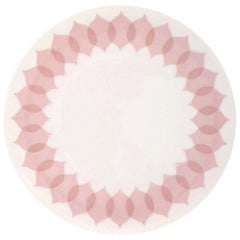Items Similar to Tapio Wirkkala for ROSENTHAL POLYGON PATRAS huge bowl fruit plate Ø 29cm 1970s
Want more images or videos?
Request additional images or videos from the seller
1 of 16
Tapio Wirkkala for ROSENTHAL POLYGON PATRAS huge bowl fruit plate Ø 29cm 1970s
$431.33
£321.04
€360
CA$590.82
A$657.12
CHF 343.13
MX$7,996.42
NOK 4,382.24
SEK 4,109.77
DKK 2,740.55
Shipping
Retrieving quote...The 1stDibs Promise:
Authenticity Guarantee,
Money-Back Guarantee,
24-Hour Cancellation
About the Item
Tapio Wirkkala
for ROSENTHAL STUDIO LINE
POLYGON PATRAS
huge bowl fruit plate Ø 29cm mid 1970s
(Wirkkala designed the Polygon shape - Alain le Foll designed the flower ornaments)
Ø 29cm ~ height: 4.5cm weight: 981 grs
Minor (micro) porcelain chip to the edge of the underside (not visible when bowl is standing see photo)
Alain Le Foll, born on 4 July 1934 in Gesnes (Mayenne) and died on 22 June 1981 in Châtenay-Malabry1 (Hauts-de-Seine), was a French illustrator, painter and lithographer. Biography After studying at the Beaux-Arts in Caen and then at the Académie Julian in Paris, he worked in the fields of press design, advertising design, children's book illustration, design and lithography.
From 1962, he collaborated with the Rosenthal factory, a German porcelain manufacturer, and also with the Zuber factory in Alsace in the production of wallpaper. From 1964 to 1981, he was a professor at the Ensad, the National School of Decorative Arts.Tapio Wirkkala (* 2 June 1915 in Hanko; † 19 May 1985 in Helsinki) was a Finnish graphic artist, interior architect and designer.
Wirkkala graduated from the University of Art and Design in Helsinki.
He worked with Raymond Loewy in New York.
From 1952 Wirkkala worked for the Finnish glass factory Iittala, which became internationally famous thanks to Wirkkala's designs and especially those of Alvar Aalto. Wirkkala's most famous designs include the Tapio drinking glass series and his leaf-shaped wooden bowls, the so-called Leaf Dishes from the 1950s.
He started working for Rosenthal in 1957. His porcelain, glass and cutlery designs include Century, Composition, Kurve, Polygon, Taille and Variation. The Century service was included in the permanent collection of contemporary design at the Centre Georges Pompidou in Paris, while Variation is now in the collection of the MoMa in New York. In 1964 his work was included in the industrial design section of documenta III in Kassel. In 1968 Wirkkala was awarded the Medaglia d'Oro for the Rosenthal Rotunda porcelain. In 1972 he was awarded the Finnish Academy of Arts (Taiteen akateemikko).
Tapio Wirkkala was married to the artist Rut Bryk (daughter of the artist and entomologist Felix Bryk). The Tapio Wirkkala Rut Bryk Foundation in Helsinki commemorates the work of both artists, whose daughter Maaria Wirkkala is also an internationally successful artist.
- Dimensions:Height: 7.29 in (18.5 cm)Diameter: 8.67 in (22 cm)
- Style:Mid-Century Modern (Of the Period)
- Materials and Techniques:
- Place of Origin:
- Period:
- Date of Manufacture:1972-1978
- Condition:
- Seller Location:Landshut, DE
- Reference Number:1stDibs: LU8587241868772
About the Seller
5.0
Gold Seller
Premium sellers maintaining a 4.3+ rating and 24-hour response times
1stDibs seller since 2023
21 sales on 1stDibs
Typical response time: 2 hours
- ShippingRetrieving quote...Shipping from: Bodenkirchen , Germany
- Return Policy
Authenticity Guarantee
In the unlikely event there’s an issue with an item’s authenticity, contact us within 1 year for a full refund. DetailsMoney-Back Guarantee
If your item is not as described, is damaged in transit, or does not arrive, contact us within 7 days for a full refund. Details24-Hour Cancellation
You have a 24-hour grace period in which to reconsider your purchase, with no questions asked.Vetted Professional Sellers
Our world-class sellers must adhere to strict standards for service and quality, maintaining the integrity of our listings.Price-Match Guarantee
If you find that a seller listed the same item for a lower price elsewhere, we’ll match it.Trusted Global Delivery
Our best-in-class carrier network provides specialized shipping options worldwide, including custom delivery.More From This Seller
View Allart deco huge Ø33cm! fruit bowl plate hand made in France ar. 1930 - very rare
Located in Landshut, BY
art deco
huge Ø33cm! fruit bowl
hand made in France ar. 1930 - very rare
in perfect condition
Category
Vintage 1930s French Art Deco Ceramics
Materials
Pottery
Hertha Bengtson Rörstrand Sweden a splendid fruit bowl with an impressive design
By Hertha Bengtson
Located in Landshut, BY
Hertha Bengtson
for Rörstrand Sweden
a splendid fruit bowl with an impressive design
Ø 35cm ~ height: 5.5cm ~ weight: 2312 grs
Hertha Bengtson
Bengtson studied at the Konstfack Sc...
Category
Mid-20th Century Swedish Mid-Century Modern Platters and Serveware
Materials
Ceramic
art deco huge Ø32cm! glass rosé colored Bohemian Fruit Bowl plate ar. 1930
Located in Landshut, BY
art deco
huge Ø32cm!
rosé colored glass
Bohemian Fruit Bowl
Category
Vintage 1930s Czech Art Deco Ceramics
Materials
Stained Glass
an amazing Fulvio Bianconi MURANO very heavy (2.25KG) 1970s BOWL or ashtray
By Fulvio Bianconi
Located in Landshut, BY
This is an incredible piece of craftsmanship!
I was just 10 years old when my father, who worked in Milan where I grew up, bought this bowl in Venice together with a huge Fazzoletto...
Category
Vintage 1970s Italian Mid-Century Modern Barware
Materials
Glass
shapely Fruit or Punch Bowl or VASE mouth blown glass Sweden around 1968
Located in Landshut, BY
multiuse shapely
Fruit or Punch Bowl
or VASE or Cachepot
mouth blown glass
Sweden
around 1968
in perfect condition
Category
Vintage 1960s Swedish Scandinavian Modern Glass
Materials
Blown Glass
Barovier Seguso & Ferro Murano heavy Art Glass Bowl Honey Amber Italy 1940s
By Barovier Seguso & Ferro
Located in Landshut, BY
A beautiful heavy Murano art glass bowl by Barovier Seguso & Ferro in honey yellow amber colour, Italy,
circa mid / late 1940s
It stays in very good original condition - with a ve...
Category
Vintage 1940s German Mid-Century Modern Decorative Bowls
Materials
Art Glass
You May Also Like
Mid-Century Modern square Faience plate by Ivan Weiss for Royal Copenhagen
By Ivan Weiss, Royal Copenhagen
Located in Berlin, Germany
Mid-Century Modern square Faience plate by Ivan Weiss for Royal Copenhagen
This square plate, model 954/3773, was designed in the 1970s...
Category
Mid-20th Century Danish Mid-Century Modern Decorative Dishes and Vide-Poche
Materials
Ceramic, Stoneware
$215 Sale Price
40% Off
Large Platter by Birger Kaipiainen for Rörstrand in Limited Edition 294/500
By Birger Kaipiainen, Rörstrand
Located in Stockholm, SE
Exceptional and beautiful large platter designed by Birger Kaipiainen for Rörstrand in limited edition, number 294/500. Decor with apples, plums and bunches of grapes. Birger Kaipiainen has been called "the master of ceramics" and "the undisputed ruler of decorative art".
Highlights of iridescent glaze. The platter is in mint condition. No sign of use.
Birger Kaipiainen began his career at the Arabia Art Department in 1937 and quickly found his own way to make art. The soon-to-begin Winter War and several losses in his personal life cast a dark shadow over the beginning of his artistic career, and this manifested as sadness and longing in his early works. They are dominated by ethereal, fairy-tale-like characters depicted in pastel tones, with references to early Italian Renaissance and longing for a more beautiful world.
Kaipiainen graduated from the School of Arts & Crafts (later known as the Aalto School of Arts of Helsinki). After graduation he went to work for Finnish ceramics...
Category
Vintage 1960s Finnish Mid-Century Modern Decorative Bowls
Materials
Porcelain, Stoneware
Mid Century Vintage Flowers Decorative Porcelain Plate, Germany, 1970s
Located in 05-080 Hornowek, PL
Decorative Flowers plate from Bavaria, Germany. Produced in 1970s.
The plate is hand painted. Plate is in very good vintage condition, no damage or cracks. Original glass. Beautiful...
Category
Mid-20th Century German Mid-Century Modern Platters and Serveware
Materials
Ceramic, Porcelain, Glass
Bjørn Wiinblad for Rosenthal, "Lotus" Porcelain Service, Large Round Dish, 1980s
Located in København, Copenhagen
Bjørn Wiinblad for Rosenthal. "Lotus" porcelain service. Large round dish decorated with pink lotus leaves, 1980s.
Measures: 28.5 cm.
In very good condition.
Stamped.
Category
Vintage 1980s German Modern Porcelain
Materials
Porcelain
Midcentury Ceramic Platter by Hilkka-Liisa Ahola for Arabia
By Arabia of Finland, Hilkka-Liisa Ahola
Located in San Diego, CA
Beautiful vintage ceramic platter in a large modernist design by Hilkka-Liisa Ahola (1920-2009) for Arabia. The motif is floral with an array o...
Category
Vintage 1960s Finnish Scandinavian Modern Centerpieces
Materials
Ceramic
$556 Sale Price
20% Off
Mid-Century Studio Pottery Plate Bowl from Wallakra, Sweden, 1960s
Located in Hamburg, DE
Mid-Century Studio Pottery Plate Bowl from Wallakra, Sweden, 1960s, in Very Good conditions. Designed 1960 to 1969 This piece has an attribution mark.
Additional information:
Materi...
Category
20th Century Swedish Mid-Century Modern Decorative Dishes and Vide-Poche
Materials
Ceramic
More Ways To Browse
French Fruit Plates
1970s Drinking Glasses
Vintage 1970s Drinking Glasses
Dior Bowl
Vintage Wooden Fruit
German Silver Cutlery
Flower Press
German Fruit Bowl
Alvar Aalto Book
French Pottery Decorative Plates
Vintage German Glass Ornaments
1950s Cutlery
German Silver Fruit Bowl
1950s Vintage Wallpaper
Rosenthal Decorative Plate
Tapio Leaf
Tapio Wirkkala Leaf
Wirkkala Leaf
